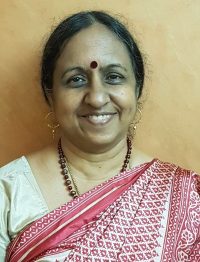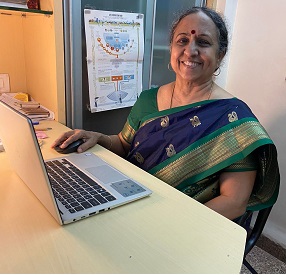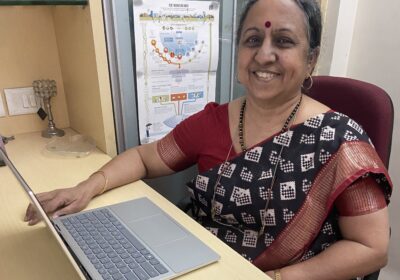A student, academician or a practitioner of any health sciences stream often needs to search the literature. An ideal researcher should spend a small percentage of time in this activity, and much more on the main research and writing.
What is the profile of an ideal researcher in this context?
Someone who has the “information needs”, clearly laid out.
Before searching the literature, one has to document the information need clearly. We need to identify literature to reference in the
a) introduction and discussion areas, and
b) literature that would be closest to our main area of work.
The literature for referencing in the introduction and discussion areas would be on broader coverage than those that are needed for the main area.
Example: If the research is about comparison for Drug A vs Drug B for a disease and maybe for a specific outcome, then the main search would be for articles that compare the two drugs for the specific disease and outcome. But for the introduction and discussion, we may need more general references for the two drugs, the disease and maybe the use of either drug for the disease. Searching has to be done for all aspects. One must know how to narrow down or broaden a search.
Someone who knows the best resources to search
Once the needs have been clearly mentioned, the researcher should first know the most obvious resources to search. PubMed and Google Scholar maybe great starting points. The Cochrane Library is a must as it has databases of systematic reviews and trials. If a topic is more Social Sciences based – (eg broader topics around road accidents, or education), then one must search databases related to social sciences too – Campbell Reviews, Social Science Abstracts, ERIC etc.
Someone who knows the right use of fields and tags, thesauri of different databases and more.
Example: The Medline database is searchable through PubMed, or other platforms like OVID. In PubMed, the thesaurus based search for a topic is done as – asthma[mesh], but in OVID, it is done as asthma/
An author search in PubMed would be – White[au], but in OVID Medline, it would be White.au.
And then one needs to know the right methods of using Boolean Operators – AND, OR, NOT, and the other proximity operators like ADJ, and NEAR. Truncation options are different in different resources
An ideal researcher should either be able to do all the above by himself, or if an information specialist does the job for him, he should be able to interpret and easily understand the search strategy. This is particularly true if one is working on search strategies for systematic reviews or meta analyses, where the strategy runs into several steps.
What is the reality?
I share the following, based on decades of observation and chats with researchers, academicians, practitioners and students
- Google is the starting point for majority
- PubMed is searched the way a generic search is done, with no use of tags, no use of a thesaurus, and more
- A large majority do not know how to describe PubMed as a resource
- Cochrane Library is free in India (full text of Cochrane Reviews and abstracts of five other databases). A huge number of people are unaware of this, and have no clue about searching this resource carefully
- Very few Indian libraries have used the LinkOut facility, that indicates what items from a search result are available in their collection. Incorporating this will save a lot of time for both users and librarians
What is the outcome of this lack of knowledge?
- Causing harm to research:
Many do not know that several journals are predatory or not peer reviewed, and submit publications to them. Or choose articles from these, for referencing. - Waste of time:
One student approached me for help as her protocol was rejected. When I asked why, she said that her references were very old. When I asked if there were no new ones, she said – “they are not free online”. I had to explain to her that just because they were not free, it did not mean that they were not published! And when I asked if she had approached her library for availability – she looked embarrassed – as she had not. - Rejection by journals:
With poor quality literature and referencing, journals are highly likely to reject articles, even if the topic seems promising. And again, it is a waste of time for a peer reviewer to go through an article that is based on poor references - Messing up the evidence:
If a systematic review or meta-analysis is done with a poor search, there is a great chance that it is being done with less number of studies. How systematic is that? What is that one missing study was a great one, and its results would have changed the evidence?
Shouldn’t literature searching be taken more seriously? With very researcher learning the process in order to do better searches and to coordinate well with search specialists? Shouldn’t this be taught in the curriculum? Shouldn’t the search strategy be judged in the post graduate thesis, so that a student will take the job more seriously? Shouldn’t we have lots more well trained medical librarians in the country to support the research needs of a huge population of health professionals and students?
We need to shake the system. And come up with changes.






No doubt literature search is extremely important and a skill that must be learned !!
The issues raised with regard to literature search in this article are quite pertinent. It has been pointed out, and realistically so, that one needs to identify the parameters before conducting the search before proceeding with it. Identification of what needs more elaboration allows researchers to have an idea of how much time to spend on what.
Sadly, many institutes fail to give their researchers a proper understanding of methodology and how to go about segregating and filtering information to use in their literature. It is also true that websites found online are often used in a haphazard manner, either because they are easily accessible, or because their is lack of training / aid to filter access to more competent sources.
A literature search is one of the most important parts of writing a thesis- I well remember staying up nights, tearing my hair over databases and Google scholar to come up with new articles so that my work would not come across as dated. Information is fluid, it keeps changing. Particularly so in the domain of medicine. Workshops, classes on methodology should be held to guide novice researchers on how to collect and present literature- it is the preliminary understanding of their whole work.
The changes must be brought from within the system, and in a continuous manner. It is, as the article has pointed out, indeed time to shake things up. Medical research is the basis is the foundation for improvement in human life. It should be in tune with the times.
All medical colleges have libraries and designated librarians. However , the facilities are not properly used. Digital guidance to any research is another field which is vastly unexplored in India. Serious research is not possible if you don’t have access to the right key. A knowledgeable guide who can provide the researcher with the right kind of material is absolutely necessary. Yes, I agree with you that a session with the digital medical librarian should be made available to all post graduate researchers. A coordinated work always pays off.
Very relevant article for every college notice board ..!!!
Literature searching is something which is very VITAL to any Doctor, if you are a practitioner, u need to know more about Literature and evidence….
I did exactly the ‘reality’ part for study and 2 hours workshop at KEM clinical research workshop in 2010 changed the way I search. Now, I know where exactly an research idea stands, no one can just fool me with ‘..in one study,… is proved’ .
Proper searching just empowers you.. And I am glad i attended the 2 hours lecture of the workshop and it changed the way I deal with research topics… Otherwise, research would have been walking in amazon jungle without GPS.. 🙂
Just Thanks Mam……
Literature search is like our financial literacy, its vital but hardly anyone knows, none teaches us..
Thank you! You have put things in an interesting manner 🙂
Excellent piece of information…..these tips are not limited to medical but across many professional courses……literature review is an integral part of research and should be given utmost importance…..thanks mam for sharing this …indeed useful!!
The whole point of evidence based medicine starts with the expertise on literature search. I congratulate QMed and the author for taking this issue passionately and training many people like me in this crucial area…
Excellent article ma’am ! 👍😊 time saving crisp methods.
Very useful information for manuscript writing, protocol writing or clinical trial. Searching appropriate, updated, valid and authentic references is not as simple job as thought to be. It’s not been taught in the medical curriculum and hence many researchers find it difficult to a systematic literature search. Most literature search is haphazard. Such information will really help the researchers and those intetested in medical writing.
Spot on mirror to most of us researchers. Acknowledging that there’s a problem is the first step in finding a solution . Kudos ma’am. Request upload ur views on what can form the potential next step in resolving the issue, such as step by step tutorials / ready reckoners. Regards and thanks.
Attend workshops
Practice
Be curious -Ask yourself – “Can I get ….. such kind of results”? And try to figure it out
Read articles on how to search
Nothing improves the quality of a paper more than good referencing. QMed has helped me and many others to acquire the skills needed for effective search of the literature. I highly recommend a training course with QMed for all researchers.
You are a great support for us!
No one could have put it more aptly .Thanks to ma’am I can now use pubmed to the fullest of its potential..still a long way to go !
Keep practising!
Excellent article. You are doing a good job Vasumathi Sriganesh.
Thank you!
Wonderfully put up! Absolutely nothing can replace a good literature search and in proper places. Thanks for highlighting exact issues!
Excellent initiative by the QMed Team. In this era of evidence based medicine, if there is anyone who can get to the level of UG students and help us understand it well, it is Vasumathi Maam and the QMed Team!
Keep the good work going Maam 🙂
This is perfect ma’am. About systematic analysis, what you said is absolutely true. Was quite unaware of this consequence. We need to reach more researchers and they should feel the need to study literature search.
Always a pleasure to read your posts. Simply put and very very useful.
Thank you.
Awaiting another session from you.
Great article ma’am! This article accurately potrays the current scenario of professionals struggling to get good references for their research. It’s truly mind boggling to fathom the vast scale of digitising and indexing of articles by pub med and other libraries and at times may feel very intimidating to use. Yet the resources are tremendously under utilised or used in an incorrect way yielding unsatisfactory references for an article. And as you rightly said, young researchers aren’t aware of Cochrane library being free in India.
That being said, I must admit I do require a refresher course to get myself acquainted again with the correct usage of Boolean operators and tags. 😁
Aditya – thank you! And – we are soon launching E-Learning modules.
Just fill in this to stay tuned
http://www.qmed.ngo/form
Excellent article. Speaks a lot about your vast experience in the field of literature search.
No doubt
Oftten these days we are practising evidence based medicine without first judging the evidence.
That makes us not much different from a lay person chosing a treatment from a casual web search.
More dangerous is the redundancy of published material ( a fallout of the publish or perish stupidity). It is not difficult to arrange for a 3rd party to get an undeserving work through the gates.
One of my teachers and doyen of medicine Dr. Hegde had commented (lamented) in a bmj editorial about how difficult it is to find a fresh young pine in a jungle of deadwood (read useless papers), and that was a couple of decades ago.
Congratulations and thanks for your brave effort.
Dr samir dg
Ex clical director
Diabetes and endocrine,
Peerless hospital, Kolkata
Literature searching has been done since centuries. This time, only the tools and methods have changed. It is this skill of using latest technology that all should develop. The need for it is just going to increase exponentially in the future with big data.
Wonderful article. Your lectures have helped me a lot during my UG research. Now I consider doing research to be a fun activity!
Parth Gada – yes – it has been done for centuries and the tools have changed.
Either way it is important to learn how to search. In the pre-computer days, one needed to know how to search print resources like Index Medicus, Excerpta Medica, Current Contents and more. In my first librarian job, we did have some volumes of Index Medicus and practically no one in the hospital knew that we did or how to use it! I had to sensitize them. I had also threatened to cancel the Current Contents subscription since it was hardly used. Then the HoD of the Biochem lab made it mandatory for the MSc and PhD candidates to use them. (Since we had the Life Sciences series)
My crib is that there is hardly any importance given to “knowing resources” and “searching” – whether in print or electronic. And THAT is what needs to change.
It is important for anyone who’s interested in research to have thorough knowledge in literature search n i agree that introducing the same in the curriculum would be of great help
Thank you Priyanka!
This is a brilliant approach Vasumathi Madam.
However, I would like to add something.
Students should be trained from Day one to develop their research skills (from 1st year or preparatory year), for this purpose, I recommend the following measures:
There should be highly active Scientific Research Council in Medical Institutions or at least Research Support Service Department for students & faculties. The research support services should conduct: (or call experts from outside)
1) Different Workshops/ Sessions on Literature Search (Tips & Techniques), Literature Search using different databases (such as PubMed and other medical databases).
2) Target Journals: How to find suitable journals (High quartile or high impact factor) to publish papers.
3) How to write: Writing as per the Journal guideline and scope to avoid rejection
4) Citation and reference: Advance workshops on using bibliographic databases such as Mendeley, EndNote, Refworks, Zotero etc.
5) Referencing and formatting services can be provided to support time management.
Thank you Khadeeja for a detailed input. In our state of Maharashtra, PG students do have Research Methodology workshops. Faculty also have to attend these. Then there is an Ethics committee in every institution, that checks the ethical part of the research. But the 1-5 that you mention are not conducted. There are individual academicians who are good at one or more of the points you mention, but there is no structured teaching or mentoring, on a regular basis. Some institutions may have a better approach than what I have mentioned, but I agree with you – that all the above skills should be taught and supported on a continuous basis in all institutions
In fact that is exactly the purpose of my blog post – to urge that every researcher can get the best training and support on all these issues.
Wonderful article, Ma’m! Your efforts and dedication towards this cause are truly inspiring.
Thank you so much! And it is great to have your support for our work, when you have integrated our training for your students.
Vasumathi mam is doing a great job in literature search for Medical students. She had been guiding our P.G. Students since 2011 in research methodology workshops. Literature search we should know how to use Google and it’s boolean operators to find the correct references. Madam teaches very good in her workshops. I will suggest students to undergo hand on workshops. So it will be easy job. For P.G. students the basis of literature is not known they got excellent laptop and excellent internet connection but do not how use Google effectively in literature search. As pointed out many students bring old reference and cross reference from textbooks. This is my personal opinion as observed in my institute. To overcome these challenges madam really helps the students. QMed Knowledge Foundation is doing a great job in field of literature search. I wish bright success for the organization for future endeavors
Thank you Dr Balaji!
Excellent article ma’am! If India needs to produce higher volume of high quality research, every student and researcher needs to be taught the art and skills of literature search and referencing.
Vasumathi Ma’am is conducting exceptional training and workshops on this. I would suggest every medical student with an interest in research to attend her workshop at least once. Pleasure to know you ma’am!
Nice article! I was not using PubMed correctly before. Learnt something new.
Hello, It is a good article. For referencing what is authentic and what should be cited as well as not cited is not clear among researchers in any field. It is the guide, mentor or teacher who should highlight the importance of literature search. And librarians can help locate those resources and help in doing better search. Today to our students also we need to point out that apart from online resources search should be done in printed resources, which most of them do not do it.
Very systematically written comprehensive article!!